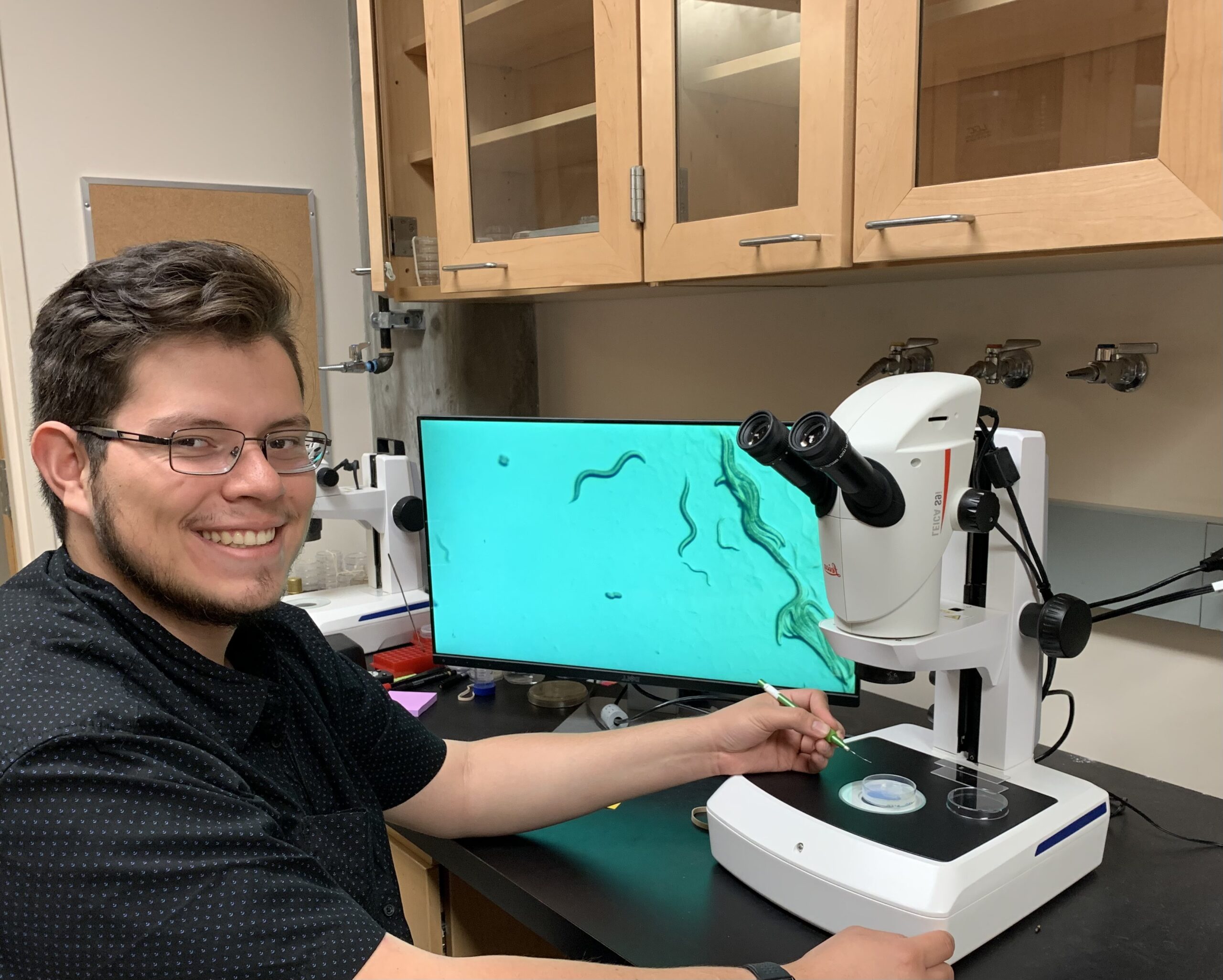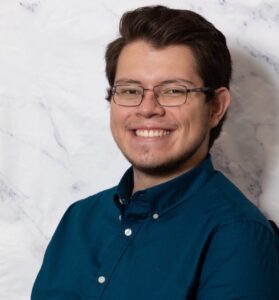
Jesus Eduardo Aguayo’s interest in Biology was fueled during his high school experience. He recalls sitting in his medical anatomy and physiology class learning about neurons when, suddenly, he learned something that would impact his life’s trajectory forever.
 Learning about the action potential of neurons was so fascinating that it was as if he was seeing a real-time animation of the neuron signaling process in his mind. Aguayo was so intrigued that he decided to pursue a research path in science.
Learning about the action potential of neurons was so fascinating that it was as if he was seeing a real-time animation of the neuron signaling process in his mind. Aguayo was so intrigued that he decided to pursue a research path in science.
When Aguayo arrived as a Freshmen to the University of Utah, he found that being a first-generation student in STEM was intimidating. He states that having his family and community’s support was fundamental to his success in education. He credits his parents with encouraging him not to give up and with being important figures in his success.
As a senior, Aguayo has had several influential experiences that have further fueled his interest in biological research. Currently a lab tech in the Rog Lab, Aguayo has contributed to the study of the synaptonemal complex (SC) which is a structure that results from the biochemical interactions of multiple smaller protein components during sexual reproduction. The SC forms between parental chromosomes and regulates interactions and exchanges between them. Though it is not yet understood how the SC carries out its functions, its individual components can give hints as to the ways it functions as an assembled structure. The intentional insertion of known mutations into the SC can shed light on the function of an individual component of the SC by comparing the variation between the wildtype and mutated organisms. Producing less offspring and a varying number of sex chromosomes are the two major indicators that a mutation had an impact on the overall structure of the SC.
His hard work in the classroom and the lab has not gone unnoticed. As recipient of a GEAR UP scholarship between 2013-2019, he was further honored with a University Trustee scholarship and a Utah Flagship Scholarship, the latter of which is through the Honors College. Aguayo then went on to receive a National Institutes of Health undergraduate fellowship, a Mountaineer Endowment for Undergraduate Research Scholarship, and was a recipient of the Esther Fujimoto Scholarship, both of which are administered through the School of Biological Sciences.
Clearly, Aguayo is destined to succeed and not just in the classroom and the lab.
Outside of his academic work, Aguayo has worked as a medical assistant since 2019 and has been affiliated with U Health since 2020 where he has been part of the outpatient float pool which allowed him to travel to all U Health outpatient specialty clinics. Soon, however, he realized he wanted to learn more about the specific aspects of direct patient care regarding a specific specialty of medicine. “I made the decision to transfer to the Madsen Clinic (still part of the University of Utah Health) so that I could enrich my knowledge in family medicine.” He has remained at the Madsen Clinic since early 2022.
The pairing of Aguayo’s academic and “day job” functions as a practicum that directly leads to his future ambitions to pursue dual MD/PhD degrees. Working in healthcare, he’s become sympathetic to “providing as much knowledge as possible to patients … [to] ease their feelings of discomfort when receiving medical care.” By working as a future doctor with a smaller patient cohort with a unique diagnosis, Aguayo hopes “to explore treatment options to improve the patients’ health while gaining knowledge of their condition.”
As he approaches graduation, Jesus Eduardo Aguayo isn’t one to slow down, or rest on his laurels. He enjoys philosophy, psychology, world languages (especially learning Mandarin), and engaging in community service. He also has advice for students who may feel challenged, as he has, by any number of barriers—not just the pandemic which has changed, and is continuing to change, all of us. “Dedicate multiple time periods throughout the day,” he recommends, “to ask yourself if there’s any small thing you can do for yourself that will bring you happiness and better help you achieve the task(s) at hand. This can be as simple as taking a brief break to walk for 15 minutes, calling a friend, or buying a small cup of coffee.
By David Pace
College of Science | Science Writer
